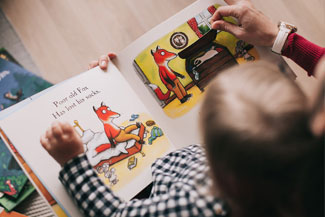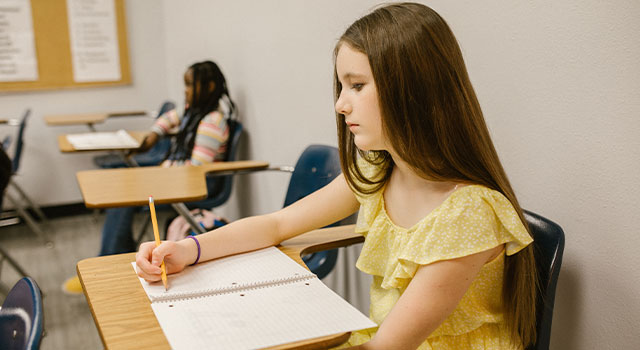
Why Visit a Developmental Optometrist?
Optometrists can undertake post-graduate training and then gain years of experience in a certain area of eye care. Just as in other fields of medicine, there are different levels of care, knowledge and expertise in specific areas of optometry. Choosing an eye doctor who has the knowledge, training and experience to treat your specific eye condition can provide optimal results.
What is a Developmental Optometrist?
Developmental optometrists have a specific interest in the optometry field of vision therapy. These optometrists can diagnose and treating children and adults with learning difficulties, lazy eye, eye turns and much more. These optometrists are also known as ‘Behavioral Optometrists’ and seeing them can make a big difference in your treatment process and results.
Optometrists
A regular optometrist can diagnose various eye diseases, prescribe medication for treatment and provide prescriptions for eyeglasses or contact lenses.
Optometrists provide eye exams that evaluate a patient’s overall eye health, visual acuity (20/20, 20/40 etc) and the need for any corrective measures. While these are important aspects of vision, these tests don’t detect other visual disorders which can impact reading and learning. The general eye exam may not detect some vision problems, such as eye teaming (binocular vision), focusing, tracking and visual processing.
Developmental Optometrists
A developmental optometrist treats functional vision problems, including lazy eye, difficulties with binocular vision, eye movements and depth perception, as well as visual deficits following brain injuries. They use comprehensive evaluations and tools that test for vision problems that may go undetected using standard vision exams. Developmental optometrists base their work on the principle that vision can be developed and improved, and done so by using prisms, lenses and vision therapy.
Certain Behavioral Optometrists focus on specific areas, such as children’s vision, sports vision, vision problems impacting academic performance, stroke and head injury and Parkinson’s Disease.
Contact Dr. Shirley Ha today to assess whether you or your child’s life is being negatively impacted by vision issues.
 What are the Goals of Behavioral Optometry?
What are the Goals of Behavioral Optometry?
- To keep vision and eye problems from developing or deteriorating
- To treat vision problems that have already developed
- To ensure that the visual abilities required for academic achievement, in work, in sports and when using computers, are well developed and working optimally
What Can I Expect During a Developmental Optometry Exam?
A developmental optometry evaluation will test for the following:
- Eye focusing – ability for the eyes to focus on an object or image from a distance
- Eye coordination – ensuring eyes work in tandem
- Eye tracking – ability to follow a moving object or text in a book
- Visual perception – checking that the brain properly ‘processes’ what the eyes see
The results will reveal which functions need improvement and will help the developmental optometrist determine which treatment option is best – whether vision therapy, special glasses and/or medicine.
Great Vision for Successful Development in School and Life
Developmental optometrists work with children and infants to ensure that these young patients develop the visual skills needed for success in school and on the sports field.
Children are particularly vulnerable to injuries that occur in school, during sports, swimming, or other extracurricular activities. Injuries such as concussions, falling down stairs or on the field, can cause vision and eye-hand coordination problems.
Children with learning difficulties can benefit from working with a developmental optometrist. For example, kids who struggle with reading are often assumed to have learning disabilities, when in reality, their learning issues can be attributed to vision problems. Moreover, incorrectly diagnosing a child with a learning disability can have many negative repercussions, on an emotional and social level, that could last for many years and all the way through adulthood.
Visual Tracking
Visual tracking is the ability to look at something and follow it as it moves or to track a line, such as when reading. When someone struggles with this movement, it can impact various activities, such as reading, comprehension or sports.
Examples of visual tracking problems in children could include:
- Reversing letters: p and q, b and d, etc.
- Using a finger to keep their place in a book
- Skipping words or entire lines
- Replacing words
- Tilting the head
- Leaning very close to a book or TV
Adults can also experience visual tracking problems, such as:
- Squinting
- Clumsy behavior
- Repeatedly re-reading or losing their place in a book
If left untreated, these symptoms can deteriorate over time. As the child grows and develops, academic studies become more challenging, requiring more focus and concentration. This renders it even more critical to assess and treat any issues with the visual skills as soon as possible.
We Can Help Your Child Have Great Vision
Children who struggle with basic eye functioning can tire easily in class, which can be incorrectly diagnosed as ADHD. They tend to also fall behind in their work and don’t perform to their abilities in reading and writing tasks.
If any of this sounds like your child, contact A-Ha Vision and make an appointment with Dr. Shirley Ha today. The doctor can run tests to identify delays in childhood visual development that may have been missed by other practitioners.
Our practice serves patients from Oakville, Burlington, Halton, and Mississauga, Ontario and surrounding communities.












